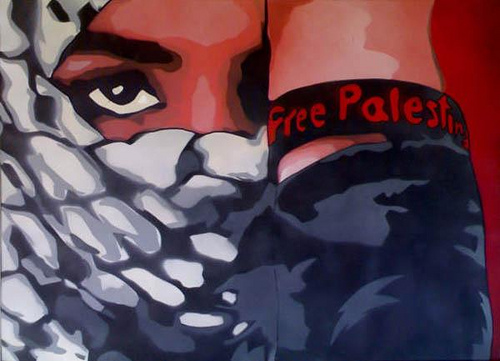I’ve been doing a lot of thinking lately, and besides the exams I had last week this is the main reason I haven’t posted anything in a while. What I’ve been thinking about is the situation in Israel/Palestine and how it could ever be solved. I hope to be writing more about this soon.
One aspect of the Israel/Palestine problem which seems undeniable is that — whatever the reasons behind Israel’s policies, no matter how valid or invalid the reasoning is, and regardless of who is to blame for this — the current policies create a reality which is harsh towards the Palestinians, even unbearable, while the Israeli population can lead more or less normal lives and act as if everything is okay. In the long run, the occupation is not sustainable — morally or practically — especially with “stability” in the Middle East disappearing before our eyes. What’s more, there are strong forces within Israeli politics which strive to further skew the situation against the Palestinians, and the opposition towards them is clearly far from capturing mainstream consensus. (I am willing to bring up specific examples for this if asked, but I assume everyone knows what I am talking about.)
With random violence against non-Jews in the news every day now I am convinced Israel is on the way towards a situation which will rob the Zionist enterprise and the very existence of the Israeli state of any last remnant of moral high ground they may possess. This is not a desirable situation as far as I’m concerned, because Israel is a great many things, many of them beautiful and amazing, even if some cause a shudder and are easier to just not think about.
I know how hard it is to do anything about this as an Israeli, in Israel or abroad. In Israel, it’s scary to talk about these things. People are aggressive and extreme in their reactions. Increasingly, the settlement movement — born as a Labor party enterprise, one should note — is succeeding in selling its narrative in which the settlements and the occupation they require are integral and inseparable from our state. However, we all know that the occupation — in which certain roads are only open to Jews, in which the rights of a new-born baby are predetermined to be extremely limited and largely ignored if they are Palestinian, or many and protected with force if they are a Jew — is morally unacceptable to begin with (even if you think it’s necessary at the same time) and simply unsustainable in the long run, as increasingly Israel becomes a state of minority rule over millions with reduced rights.
So what can we do? Well, one thing we can do is support BDS: Boycott, Divestment, Sanctions. This is a series of measures taken by individuals, corporations, and governments (respectively) in order to isolate a rogue state, and it was used with great success to end the apartheid regime in South Africa. The right wing recognizes the power of BDS and is working on legislation to make it illegal for Israelis to speak out in support of it. The goal of BDS is to make the occupation unsustainable not only morally or in the long run but in immediate ways, as soon as possible. Its goal is to put international pressure on Israel to end the occupation, one way or another, by sending a clear message that a “temporary occupation” going on for decades without any exit strategy is not an acceptable thing for a member of the international community to engage in, and that Israel will only become more isolated if the occupation persists.
This is a tremendously difficult issue, and not the most straightforward approach for a citizen of a democratic state to influence their government’s policy. This is why, although I have read about BDS many times in the past months, I have not been sure what to think of it. This morning I read a very clear FAQ (Eng / Heb) targeted at residents of Israel and Israeli citizens abroad. If you fall into these categories, I urge you to read the FAQ and give this matter some thought.
Joining the statement is not much work, and certainly liberals, moderates and pragmatics in Israel have a lot of real work to do to change things from within. (Personally, I’m trying to figure out in what ways I could do that if I were to move back.) But with the rising waves of incitement and violent racism, with legislation brought in to Knesset every week to limit our rights and constrain political opposition to maintain the status quo, a little pressure from outside may go a long way to change the status quo and reign in the atrocities waiting to happen. The fact that Israelis support such measures is crucial to promoting them abroad. Moreover, if we are ever to normalize relations with the Palestinians, it is absolutely crucial to develop a sense of mutual solidarity in face of the current situation, which one day will be looked at as a period of history which people prefer not talk about too much.
I’m certain most Israelis disagree vehemently. I’d love to hear why in the comments — but please check the FAQ first so I don’t find myself copying and pasting from it in lieu of actual discussion. I can be convinced to change my mind and admit I was wrong, I promise!


